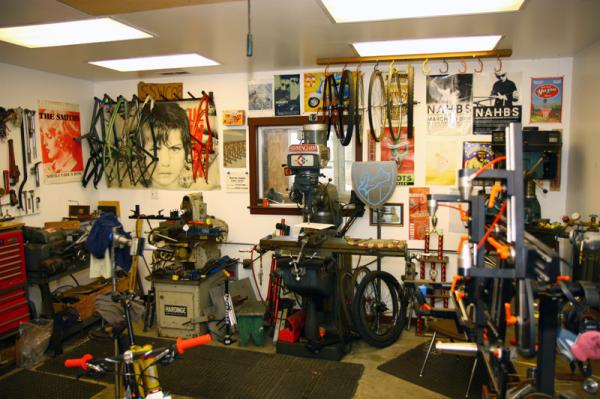Why your local bike shop will survive
The local bike shop can never compete with online retail, but there are things it does better

You can ride some of the greatest routes in cycling virtually, peruse all the best road bikes online, and buy exactly what you need without having to leave your home.
The digitalisation of cycling has been remarkable. First, it was Strava to track our real-world rides. Then Zwift allowed us to ride in our living rooms. All along, there has been the building tide of online purchasing, throttling the traditional physical retail experience. These trends cast significant doubt on the future of the local bike shop (LBS).
As with all digitally geared disruptions, things are not quite as desperate for the LBS, as some would like us to believe. Despite the LBS requiring transformation to remain relevant, there is no question that shops, their staff and specific skills can be digitally futureproofed.
What the LBS is no longer great at
It could be argued that the LBS was always a jack of all trades, and never quite a master of one. Novice cyclists would enter, and sales staff had to educate and initiate them into the cult of riding. Nowadays, a new rider can acquire deep reserves of knowledge beforehand, by researching online resources and enter the bike shop with more than an elementary knowledge of what they want.
Another aspect where the LBS has become irrelevant is as a vendor of cycling product and parts. There is no counter to scale, in the economics of cycling, and online stores can easily outprice. With customers increasingly willing to shop online and interact with slick digital retail experiences, the cost of holding capital over time, in potentially overpriced inventory, is too risky for most LBSs - especially those which are not concept stores.
For those wishing to retain pure retail as a core part of their LBS business model, the future will be uncertain. But there is value to be added by a reformed LBS, even in a time of surging digitalisation throughout the cycling experience.
Service and skills
A classy LBS combines a sense of community with specific skills, offering cyclists an experience which cannot be replicated online. Loyal customers often receive intuitive service from their LBS, especially regarding component choices and build advice.
Get The Leadout Newsletter
The latest race content, interviews, features, reviews and expert buying guides, direct to your inbox!
You might be desiring a dream build, but some of the component selections could have convergence issues. A skilled mechanic will recognise the potential for mechanical conflict and advise you on a choice solution.
In the past, LBSs could be guilty of pushing certain brands and parts due to specific retail agent incentives, but as they become pure servicing centres, you are more likely to receive brand-neutral advice.
Some riders might fancy themselves as accomplished home mechanics and amateur technical analysts, but there is no substitute for the sheer hours of wrenching and wheel building that LBS staff do. It might be fun to challenge oneself with a simple component fitment or adjustment at home on a rainy day, but not everyone is adept at working with tools.
For cycling obsessed teenagers or those wishing to apprentice into the cycling industry, a vacation work stint at the LBS remain their best initial skills development opportunity.
As scheduling between work and family time becomes pressurized, you are best off paying somebody more skilled to do a job correctly – and in good time.
The LBS as a choice service centre is certainly the future. Carbon fibre components are expensive and require care when being fitted and tightened. The myriad of rim shapes, bottom bracket types and crank standards can become bewildering. Hydraulic discs brakes also require bleeding, which can be a messy and frustrating process for the inexperienced.
It is far better to have a skilled mechanic execute your vision of that new build or upgrade, than attempt something beyond your competency – and suffer the regret of ruining a new component before you have even ridden it.
Cycling technology is not going to slow and proprietary tooling is expensive. Not every rider has the budget or workspace to do their own servicing, which creates that opportunity of sustainability, for an LBS which repurposes to servicing. For riders with limited funds, the LBS often takes a long-term view and might help you refurbish some components until you are in a position to upgrade with some shiny new bits.
The retail LBS is under pressure. But its transformation destiny from a pure retail business, to a service and fulfilment centre, shows great promise. A place to have a coffee and talk bikes, whilst your own is being tended to, is reason enough for the LBS to remain an anchor of localised cycling communities.
Lance Branquinho is a Namibian born media professional, with 15-years of experience in technology and engineering journalism covering anything with wheels. Being from Namibia, he knows a good gravel road when he sees one, and he has raced some of Africa’s best-known mountain bike stage races, such as Wines2Wales and Berg&Bush.